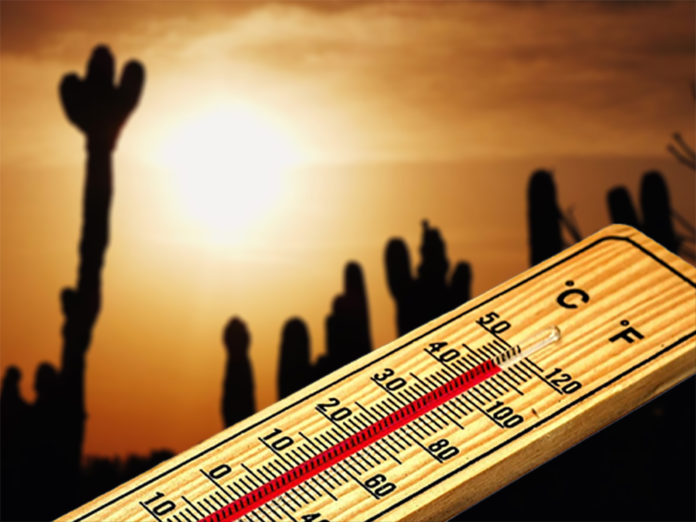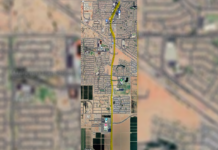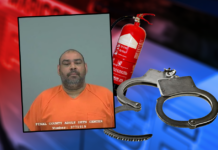
After a brief return to normalcy, Maricopa residents will again delve into an excessive heat warning this weekend.
The National Weather Service reinstated what was the longest ever excessive heat warning, beginning tomorrow at 10 a.m. and ending 8 p.m. Monday. Affected areas include much of Pinal and Maricopa counties.
Lead meteorologist Alex Young said Maricopa residents can expect the next week to feel exceptionally toasty.
“We have high pressure building across the area, so we’re going to become hotter and drier as a result,” Young told InMaricopa. “We had normal conditions Sunday and Monday with some rain but that’s all going away.”
High temperatures in early August typically hover between 104 and 106 degrees.
Young said NWS is reinstating the warning to protect the community’s most vulnerable, namely young children, seniors and unsheltered people.
“We have this metric called heat risk to consider what temperatures may impact those groups most,” he said. “It combines what’s normal for the area and what temperature extremes will affect them.”
NWS advises people to stay hydrated and indoors when possible. Residents should also check on elderly neighbors, family and friends.
Hottest summer far from over
Globally and locally, July went down as the hottest month on record. The region saw a historic month-long heat wave with afternoon temperatures frequently topping 117 degrees.
This could have led to a rise in heat deaths in Pinal and Maricopa counties.
As of July 22, Pinal County Medical Examiner confirmed heat deaths nearly tripled from 4 to 11. Those numbers did not include any pending autopsies, so it is likely that number could increase.
The first recorded heat death in Maricopa this summer took place June 21 when a 57-year-old man died of heart disease with physical exertion and heat exposure listed as contributing factors.
One month later, a 79-year-old man from Maricopa died at about 6:50 p.m. from heart disease “exacerbated by environmental heat exposure,” the medical examiner reported.






![In mayoral race, it’s the Nancy Smith show Maricopa Chamber of Commerce Executive Director Kelly Anderson grills incumbent Mayor Nancy Smith in election's first campaign event April 30, 2024, at Southern Dunes Golf Club. [Elias Weiss]](https://www.inmaricopa.com/wp-content/uploads/2024/04/CRM_1009-218x150.jpg)
![Merging lanes incite more 347 anger A merging lane sign sits on the side of State Route 347 northbound lanes during evening traffic on April 30, 2024. [Monica D. Spencer]](https://www.inmaricopa.com/wp-content/uploads/2024/04/spencer-043024-adot-merging-lanes-347-web-218x150.jpg)



![City gave new manager big low-interest home loan City Manager Ben Bitter speaks during a Chamber of Commerce event at Global Water Resources on April 11, 2024. Bitter discussed the current state of economic development in Maricopa, as well as hinting at lowering property tax rates again. [Monica D. Spencer]](https://www.inmaricopa.com/wp-content/uploads/2024/04/spencer-041124-ben-bitter-chamber-property-taxes-web-218x150.jpg)





